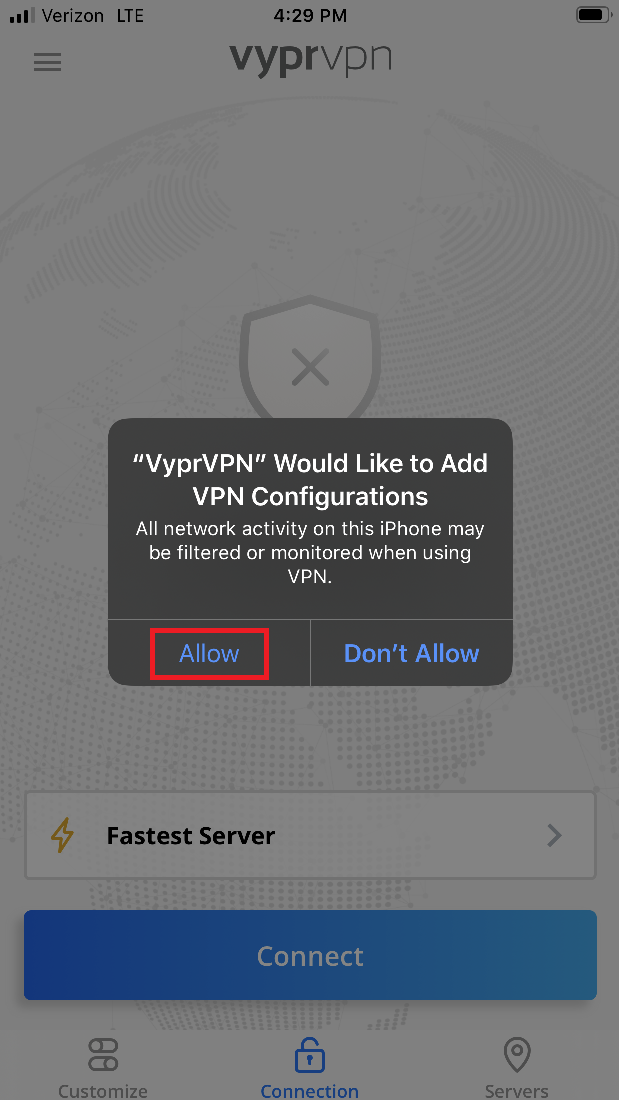Summary of the Article: Should I Allow VPN Configurations on iPhone?
A VPN is crucial to use on your iPhone to ensure your online privacy and security. The built-in encryptions in iPhones only protect the traffic sent to Apple’s servers, leaving the rest of your internet traffic vulnerable to cybercriminals.
Enabling VPN on your iPhone creates a secure and encrypted tunnel between your device and the VPN servers. This prevents local ISPs and public Wi-Fi networks from intercepting your data or invading your privacy.
Setting up a secure VPN on your mobile device ensures that any information you send over the internet will be protected. It safeguards your privacy from entities like your ISP, Google, and websites that track your browsing habits.
Using a VPN whenever you’re online is recommended to protect your data and privacy. Without a VPN, your online activities can be monitored and exploited. A VPN encrypts your data, keeping it hidden from prying eyes.
You should leave your VPN on all the time on your phone to ensure the best online security. It protects against data leaks, cyberattacks, and intrusive snoopers like ISPs or advertisers, especially when using public Wi-Fi networks.
A VPN on Android phones is necessary for privacy protection, defeating censorship, and accessing streaming content when away from home. It is recommended to use VPN services through their web portals for enhanced privacy.
Using a VPN at home may not be essential if your internet activity is already protected by a password-protected Wi-Fi network. Additionally, connecting to a remote server can slow down your connection speed.
Questions:
1. Should I allow VPN configurations on iPhone?
It is crucial to use a VPN on your iPhone to ensure your online privacy and security. Without a VPN, your internet traffic is vulnerable to cybercriminals.
2. What happens if I allow VPN configurations?
Enabling VPN on your iPhone creates a secure and encrypted tunnel between your device and the VPN servers. This prevents local ISPs and public Wi-Fi networks from intercepting your data.
3. Should I turn on VPN configuration?
Setting up a secure VPN on your mobile device ensures that any information you send over the internet will be secure. It protects your privacy from entities like your ISP, Google, and websites that track your browsing habits.
4. Should a VPN be on or off?
A VPN should always be used whenever you’re online to protect your data and privacy. It encrypts all of your data, effectively hiding any information about you from prying eyes.
5. Should I leave my VPN on all the time on my phone?
Yes, you should leave your VPN on at all times on your phone to ensure the best online security. It protects against data leaks, cyberattacks, and intrusive snoopers like ISPs or advertisers.
6. Do I need a VPN on my phone?
Yes, a VPN on your Android phone protects your privacy, defeats censorship, and allows access to streaming content while away from home. Use VPN services through their web portals for enhanced privacy.
7. When shouldn’t I use a VPN?
Using a VPN at home may not be necessary if your internet activity is already shielded by a password-protected Wi-Fi network. Additionally, connecting to a remote server can slow down your connection speed.
